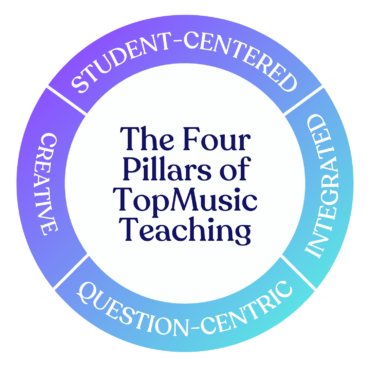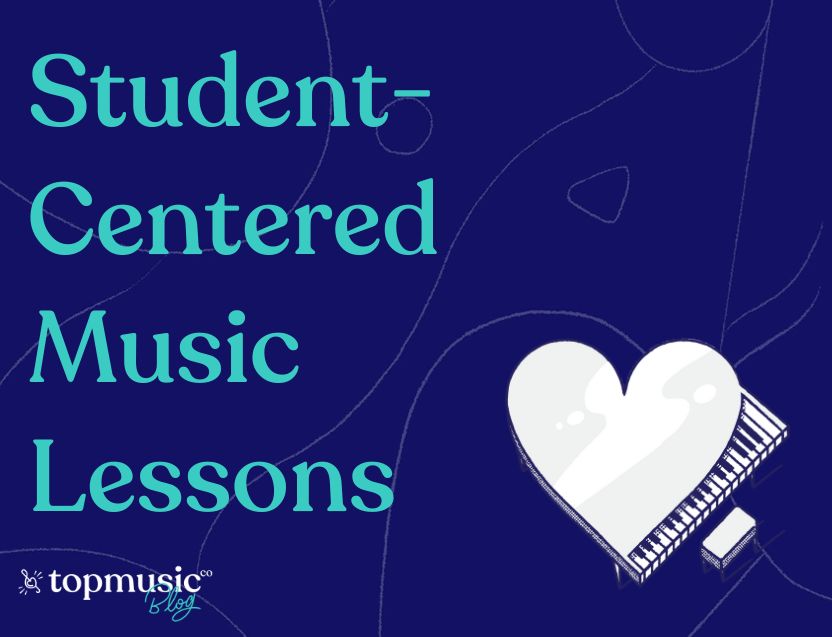Student-centered is one of the four TopMusic Teaching Pillars:

But what exactly is it? And why should you be teaching student-centered music lessons?
Table of Contents
Put simply, it’s when the student plays a vital role in decisions regarding their musical education. Rather than you making decisions for them, it’s making decisions with them.
Let me ask you a simple question:
What are the key learning outcomes of your music lessons?
What do you want your students to be able to do when they ‘finish’ lessons with you?
Was your answer along the lines of “love music”?
That’s great. But let’s go deeper. How about
Here’s a list of some of the goals I personally think are crucial for students to be successful, lifelong music-makers:
But the point is:
While you may have your own set of goals you feel your students should achieve; unless you ask them about their aspirations, you’ll never be entirely on the same page.
Giving students this choice- this autonomy in their learning – is the core of a student-centered approach.
“When students choose their own piece, there is an 11-fold increase in productivity” – Professor Gary McPherson
It’s also backed by research.
Think about how you learn best.
If you began learning a new skill today, would you like to have a curriculum set in stone and feel like you’re just a cog in a machine?
Or would you rather have agency in the direction of your learning?
If you’re like most adults, you’ll always opt for the latter.
Different levels of student-centered are required at different ages and stages.
Adults should have almost total control over what they learn for maximum motivation and engagement.
However, 6-year-olds should have a curriculum determined mainly by a teacher, with some room for choices over pieces, exercises, activities, etc.
The TikTokification of our children is leading to even shorter attention spans. Most children starting music lessons simply don’t know how long it takes to be good.
And this leads to quitting too soon.
Especially if the initial focus is solely on technique.
Sure, there’ll be the 1% of students with committed parents who are happy to focus on perfect technique and performance from the start without losing interest.
But these students are in the tiny minority.
You need to get just the basics down.
They need to know enough to get started making sounds.
Then, you must hook them into lessons to ensure they don’t give up too soon.
That’s what being student-centered is all about.
When you take a student-centered approach to teaching, you will naturally need to reconsider how you assess your students.
Put simply, the traditional, formal recital might not be the best way to assess and strive toward student progress for all students. And that’s okay. Recitals aren’t necessarily the best assessment strategy.
If you have students who find the idea of performing live absolutely terrifying, there are other ways to assess them and other goals you can set with them:
Related: Are Recitals the Best Way to Assess Students?
Talk to your students. Give them different options. Let them make choices.
Giving your students agency in their learning is vital for self-motivation and a long-term commitment to music.
Student-centered is part of the Integrated Music Teaching approach. Learn more about IMT in the FREE TopMusicMag.
